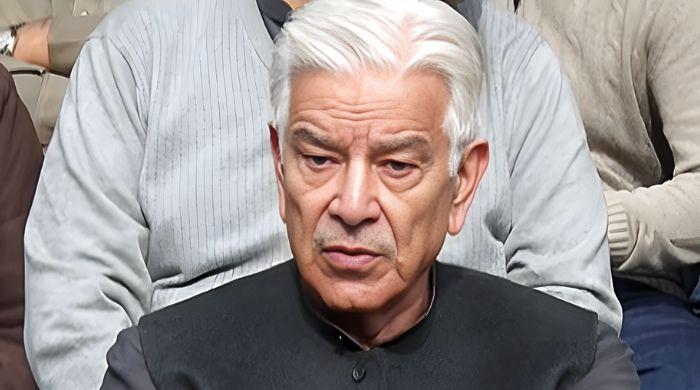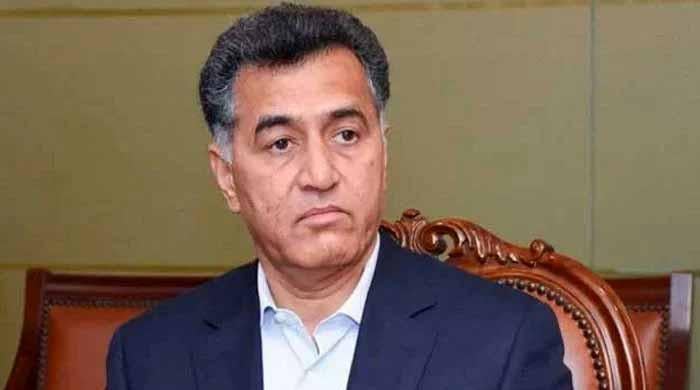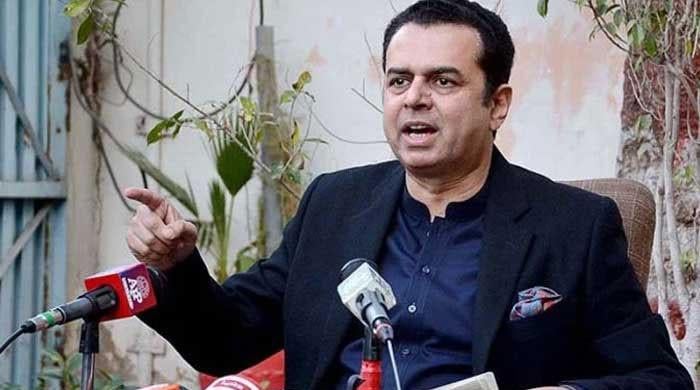'Mandi jao ge?': Here's what you should know about purchasing animals for Eid ul Adha
Despite the coronavirus pandemic, it seems people are just as excited as ever to visit livestock markets to haggle over animals
July 30, 2020
It's that time of the year again, when bakra-mandi enthusiasts all over Pakistan flock to makeshift livestock markets in droves to inspect and haggle over animals to sacrifice for Eid ul Adha.
Even this year, despite authorities warning of the attendant dangers of large gatherings in public spaces amidst the coronavirus epidemic, enthusiasts seem unable to resist the temptation of visiting the colourful, once-in-a-year pop-up fairs that most of the biggest livestock markets turn into.
Purchasing animals is a dirty job (in the literal sense), which requires patience and a discerning eye. It entails hours of wading through mud and muck in the quest to purchase the healthiest, most beautiful animal for the best possible bargain you can strike.
It is not easy to choose the right sacrifice, especially when so many options are available in all kinds of different colours and sizes.
The seriousness of the task is also compounded by the fact that religion necessitates a thorough examination of the animal that is to be offered as a sacrifice. Islam dictates that the sacrificial animal has to be an adult, in good physical condition and without any obvious physical defects for the sacrifice to be acceptable to God.
With all of that in mind, we spoke to a few experts to help readers in the process of buying an animal. Here are a few important things that you need to look out for when purchasing an animal for sacrifice:
Physical examination is key
Cattle caretaker Ilyas Chaudhry, 36, told Geo.tv that: "The first thing one must look for in an animal when purchasing it for sacrifice is for at least two permanent incisors (pair of front teeth present on the lower jaw), indicating that it is a year old. The next thing you want to look for are any injuries in the animal."
Cattle vendors will display animals' teeth to you if asked to do so. Examine thoroughly to see any signs of disease. The presence of at least two prominent front teeth on the lower jaw that are longer than others is necessary, as they indicate that the animal is of permissible age. Sometimes wily vendors will try to pass on older animals as young, so do look for signs of any teeth which have been filed down.
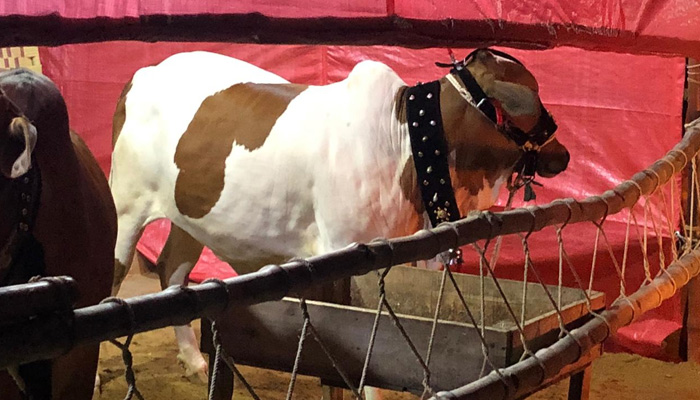
Scamming gullible buyers is common, Chaudhry warned, and animals on sale can sometimes be less than a year old, have injuries, or have an infection in their eyes.
When asked how a buyer can spot less obvious defects, he explained: “The animal will not be eating properly — it will consume less food than usual. It will walk slowly, and, if the eyes have an infection, the eyes will appear watery and the animal might blink repeatedly.”
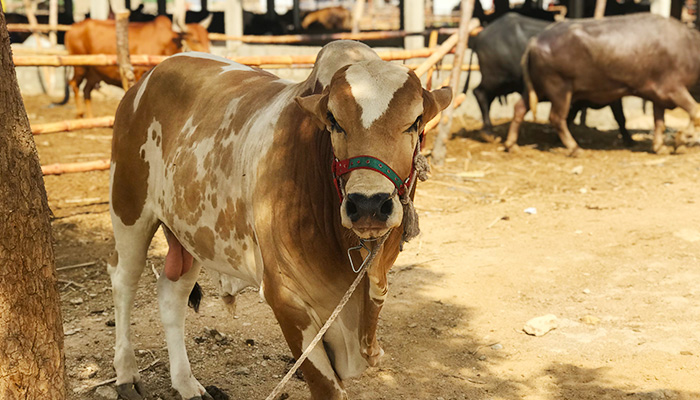
'Look out for active animals'
An active animal is a strong indicator of good health, 23-years-old Ibrahim Qadri, who has been purchasing animals for Eid with his father since he was five years old, told Geo.tv.
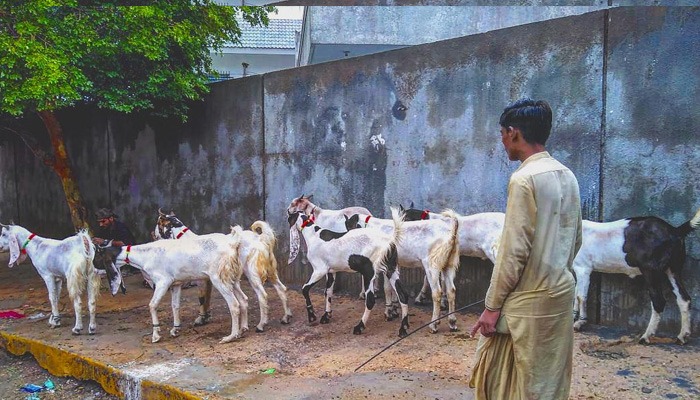
Qadri said that the activity level of the animal usually reflects the health of the animal. An active animal with normal eating habits is the ideal animal to purchase. Avoid animals that seem lethargic, tired or whose heads are drooping.
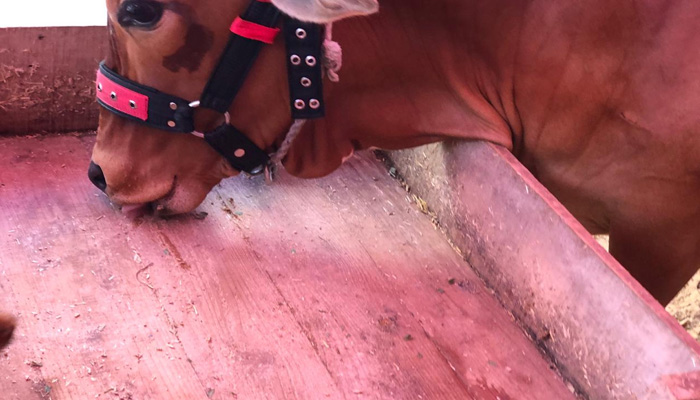
Other than that, an animal should be closely examined for its limbs and hooves for injuries and diseases. The hooves should look healthy. Avoid animals that are licking their hooves or limp when they walk.
'Do not make haste'
The last word of advice comes from cattle vendor Abdul Quddus. Quddus, who has been rearing cattle for almost 40 years now, told Geo.tv that buyers should not make haste when purchasing animals for sacrificial purposes.
"One should meticulously examine the animal and inquire about all the details they can think of from the seller in order to avoid any issue later on," Quddus added.
Take your time if you like an animal enough to consider purchasing it. Take it for a short walk. Find out about the animal's eating habits and ask how to take the best care of it before the sacrifice. Watch the animal closely meanwhile for any warning signs. It not uncommon to share a cup of tea with the vendors while a deal is being made. Satisfy yourself: remember that qurbani is a serious matter and needs to be done right.
In line with government directives for COVID-19, Geo.tv recommends that readers take all necessary precautions to protect themselves and others from the coronavirus, including wearing protective masks in public, avoiding touching their eyes or face, sanitising their hands regularly and exercising social distancing at all times. These precautions are especially important if people are visiting public places like livestock markets.





